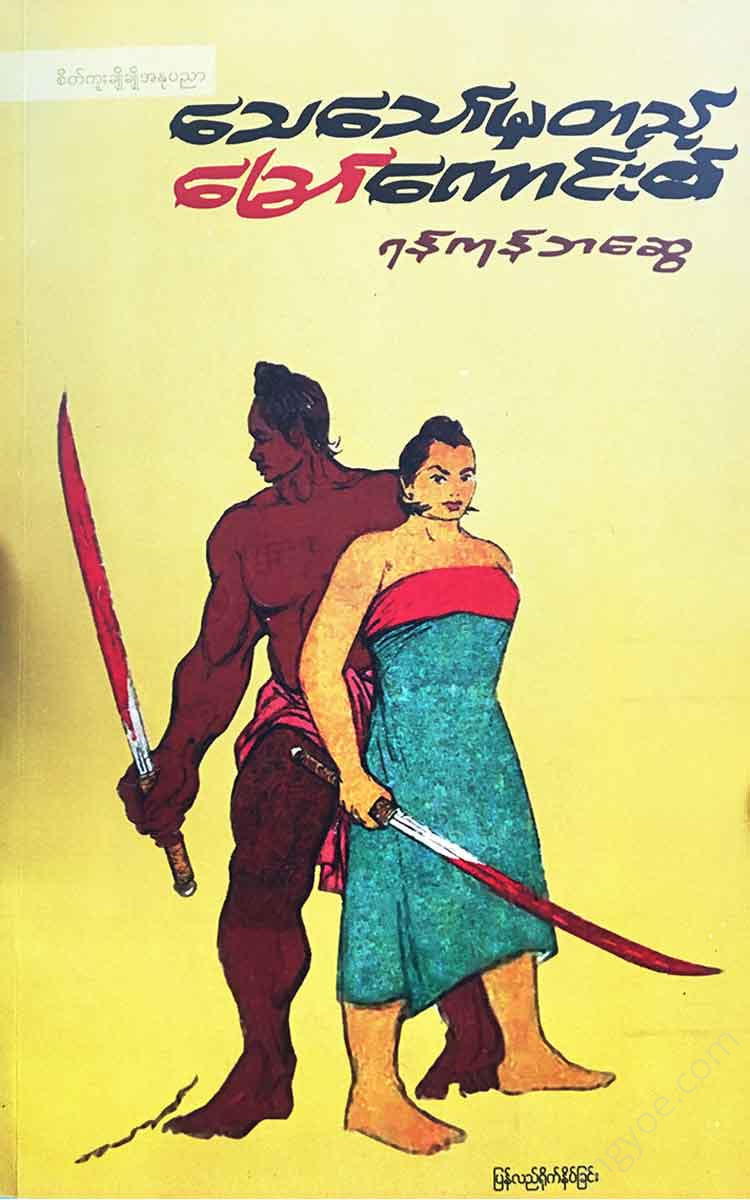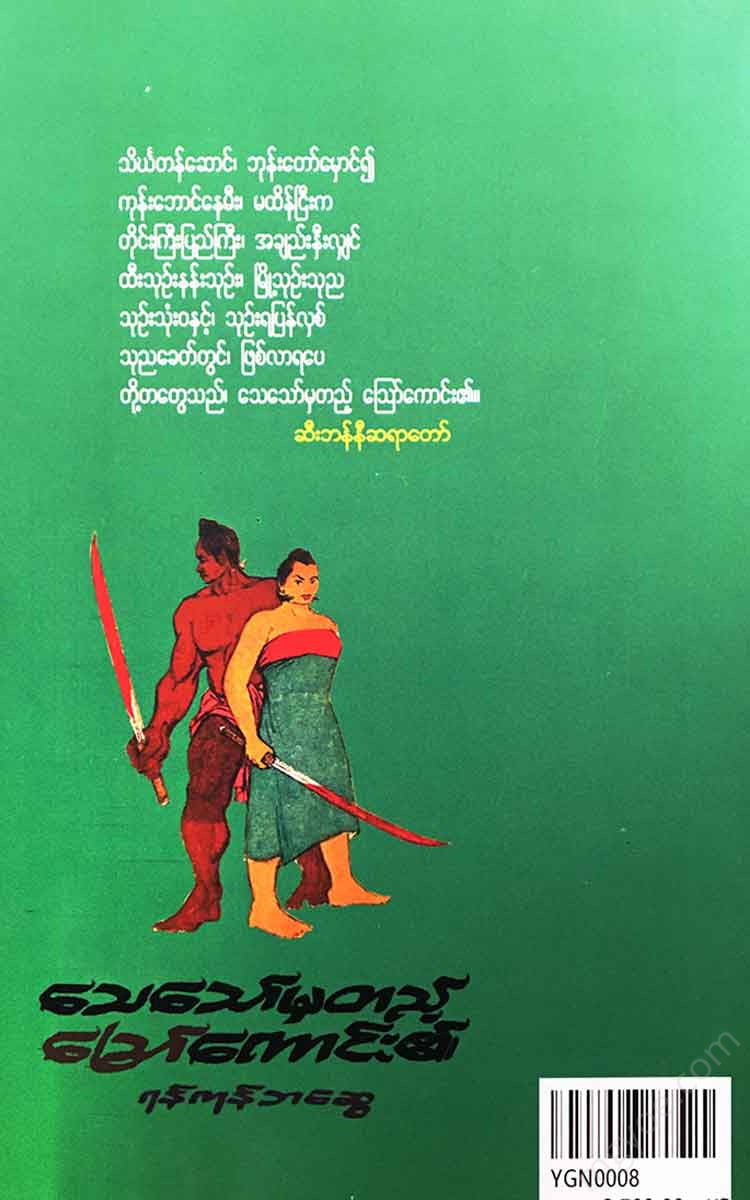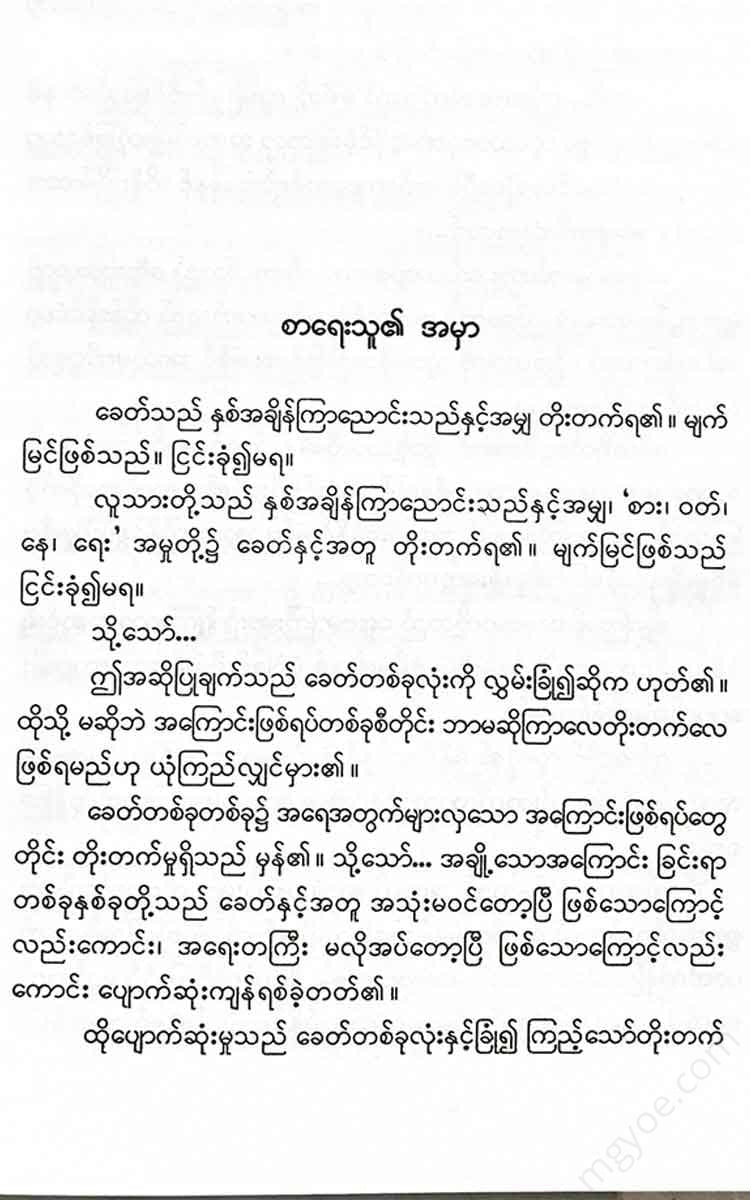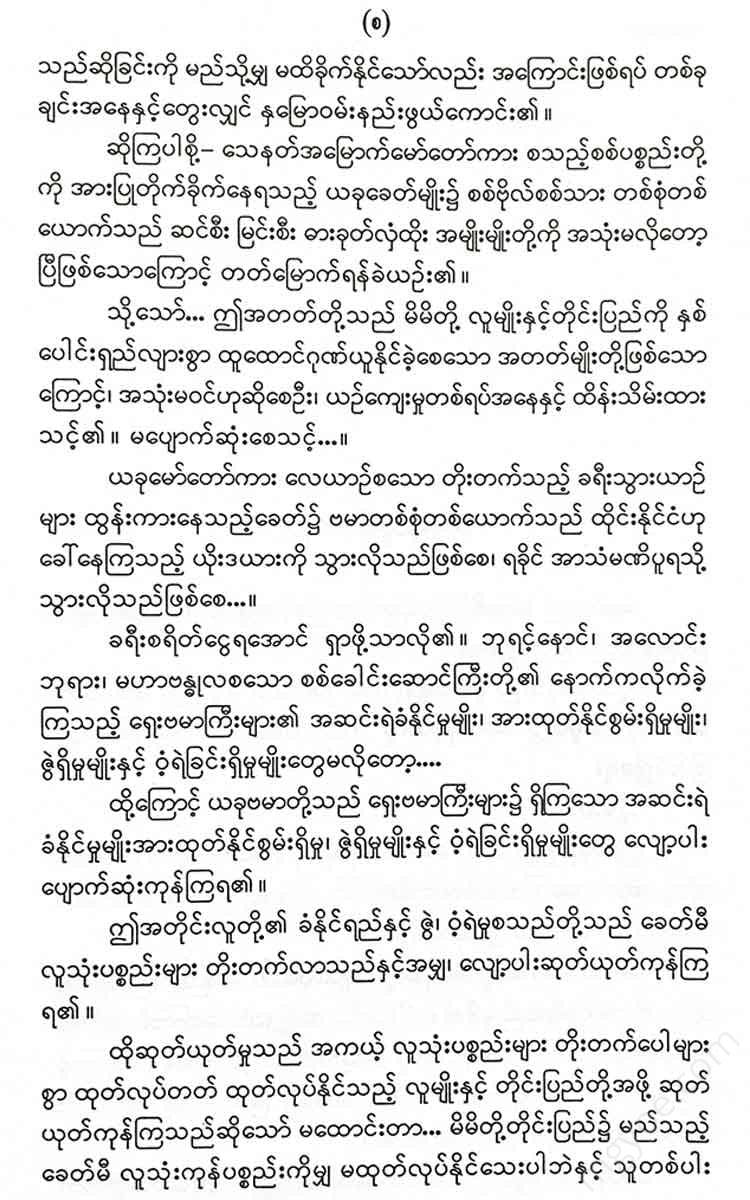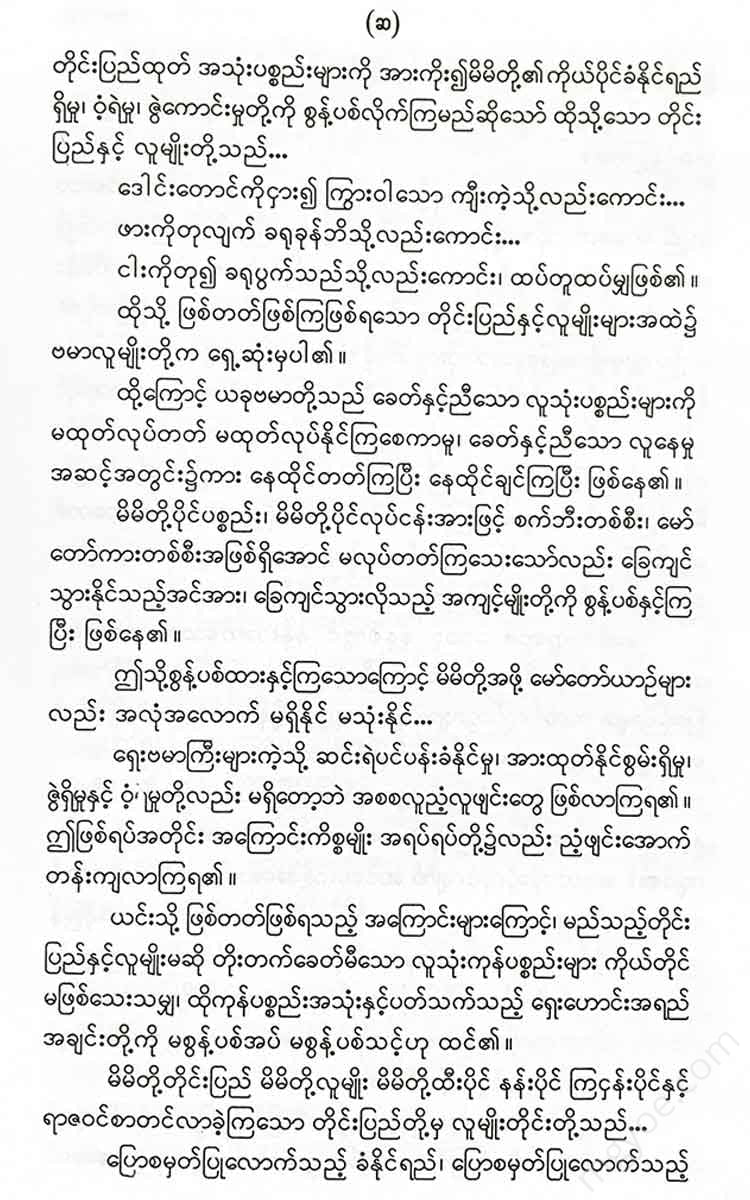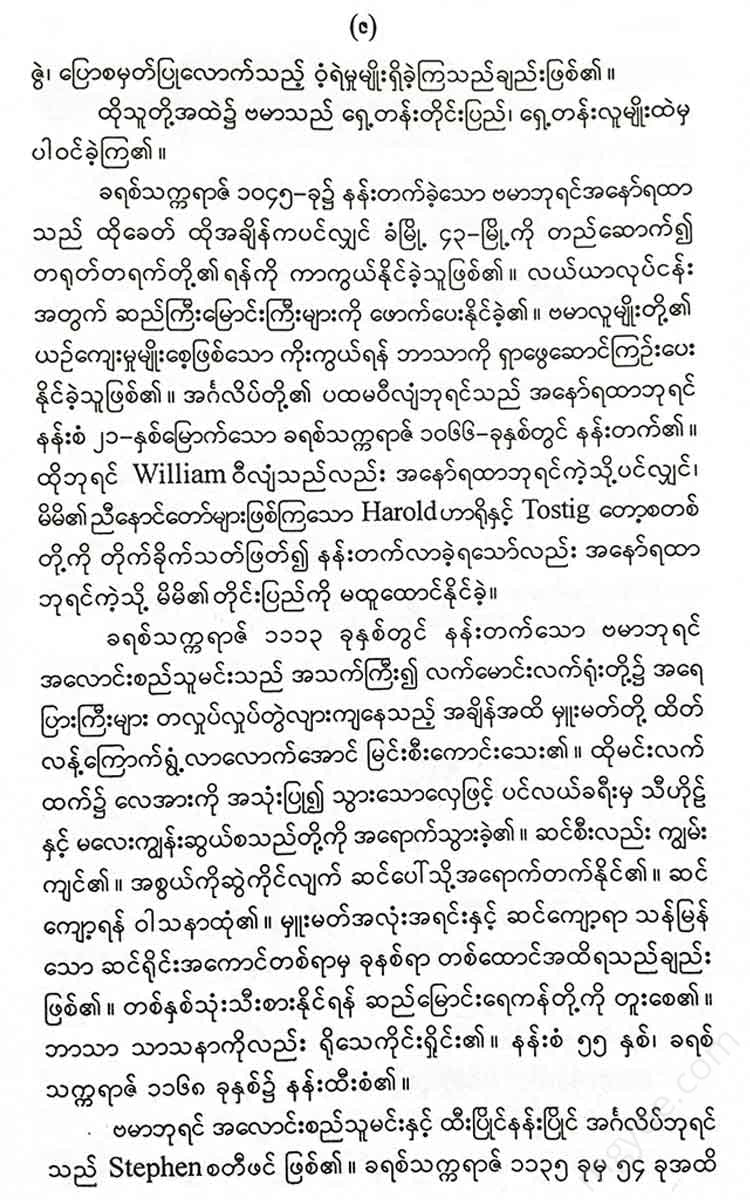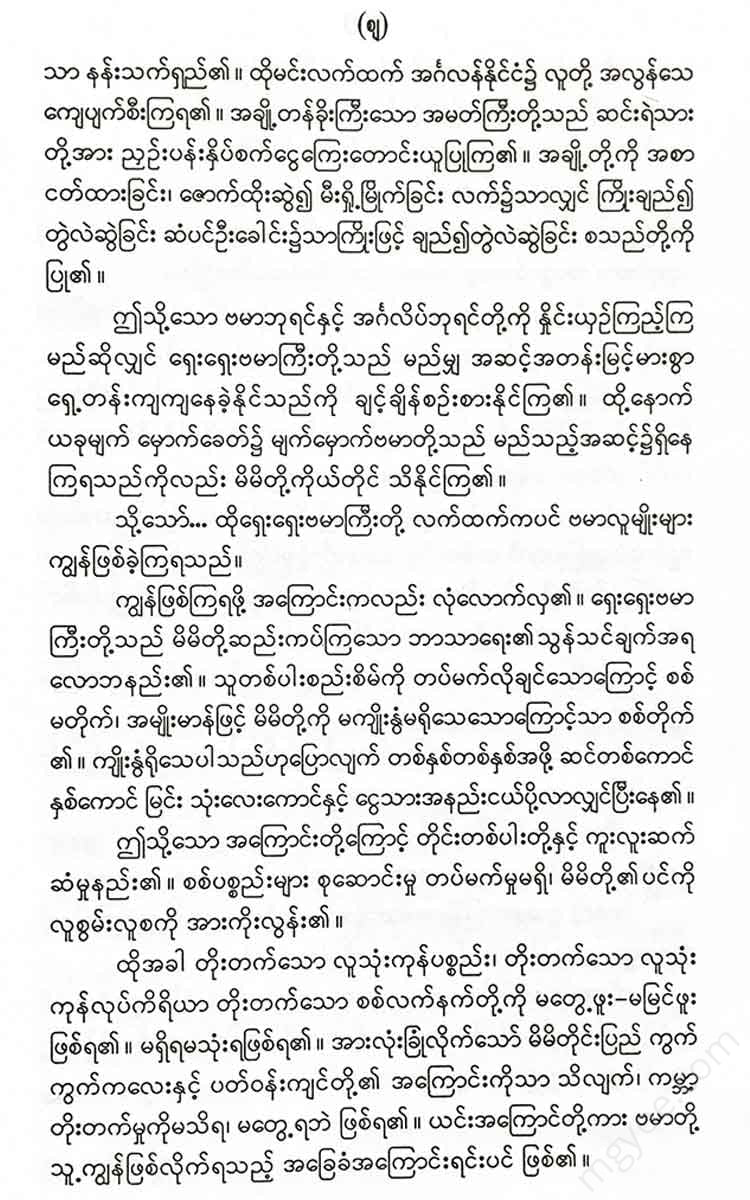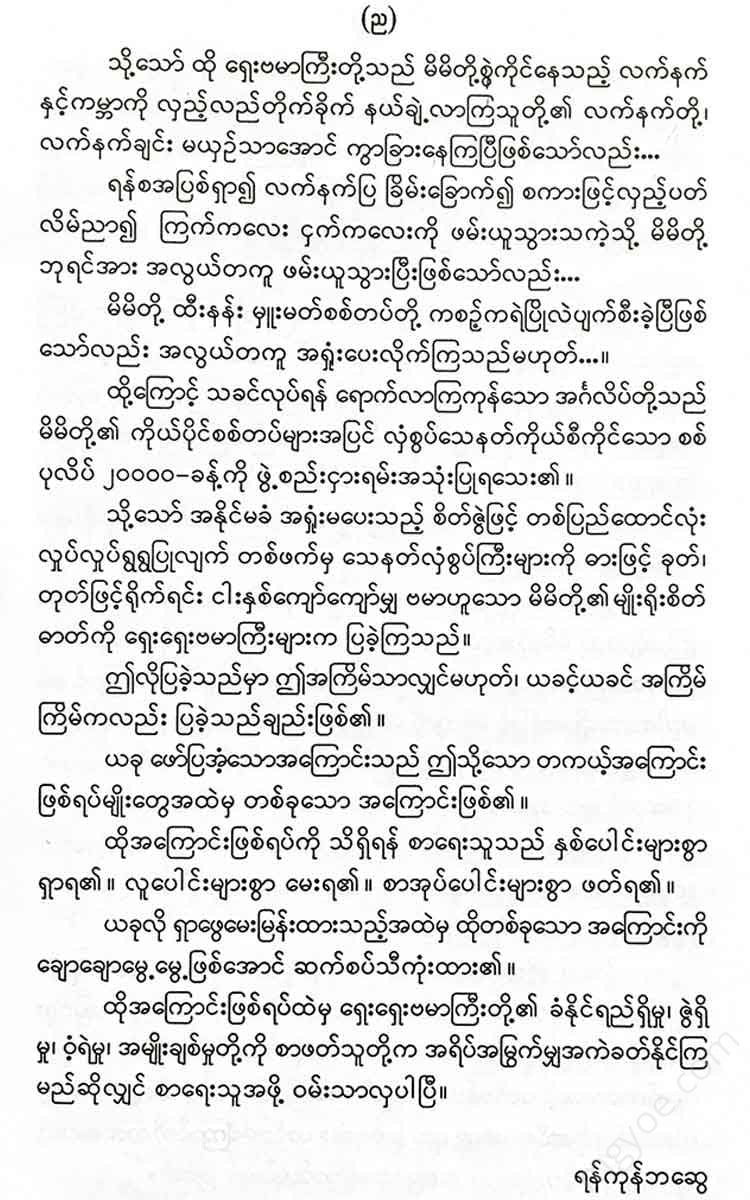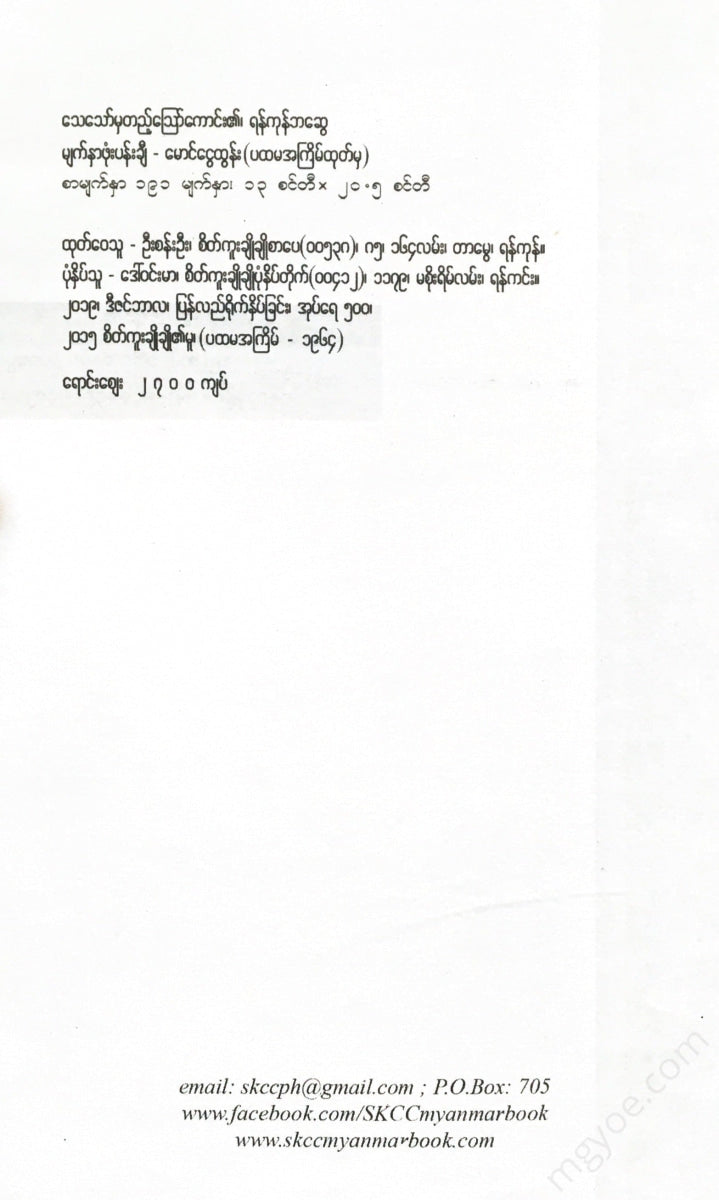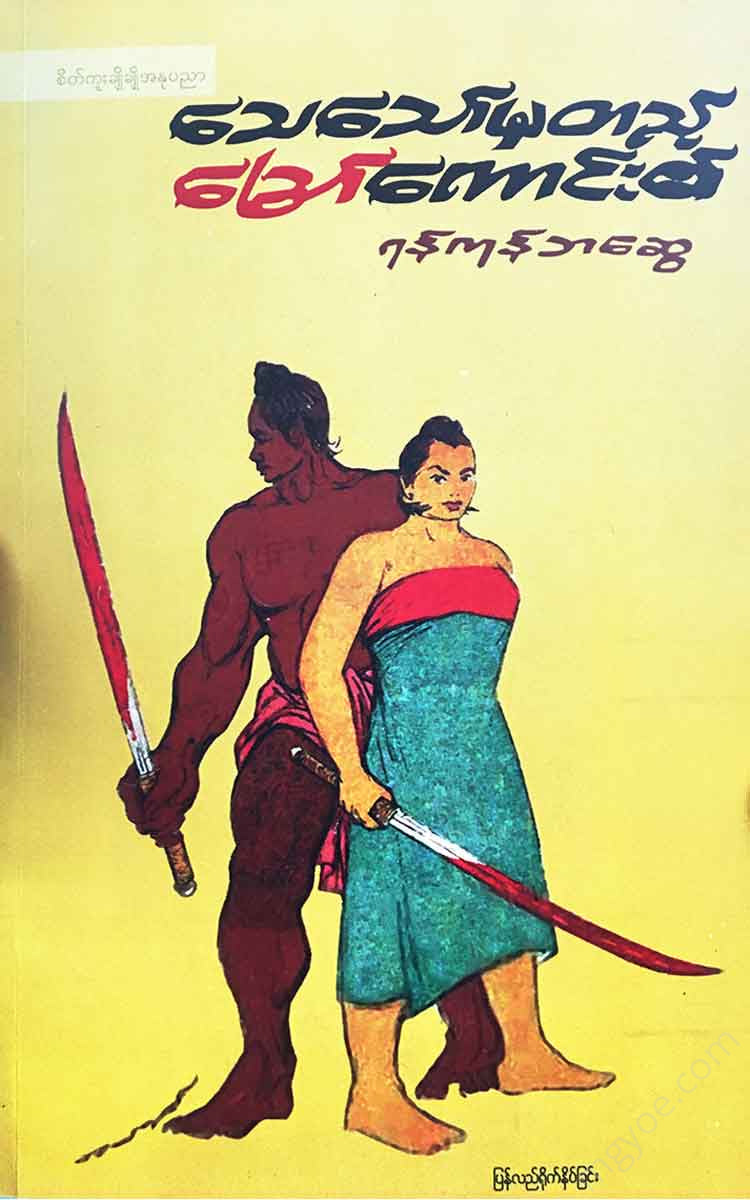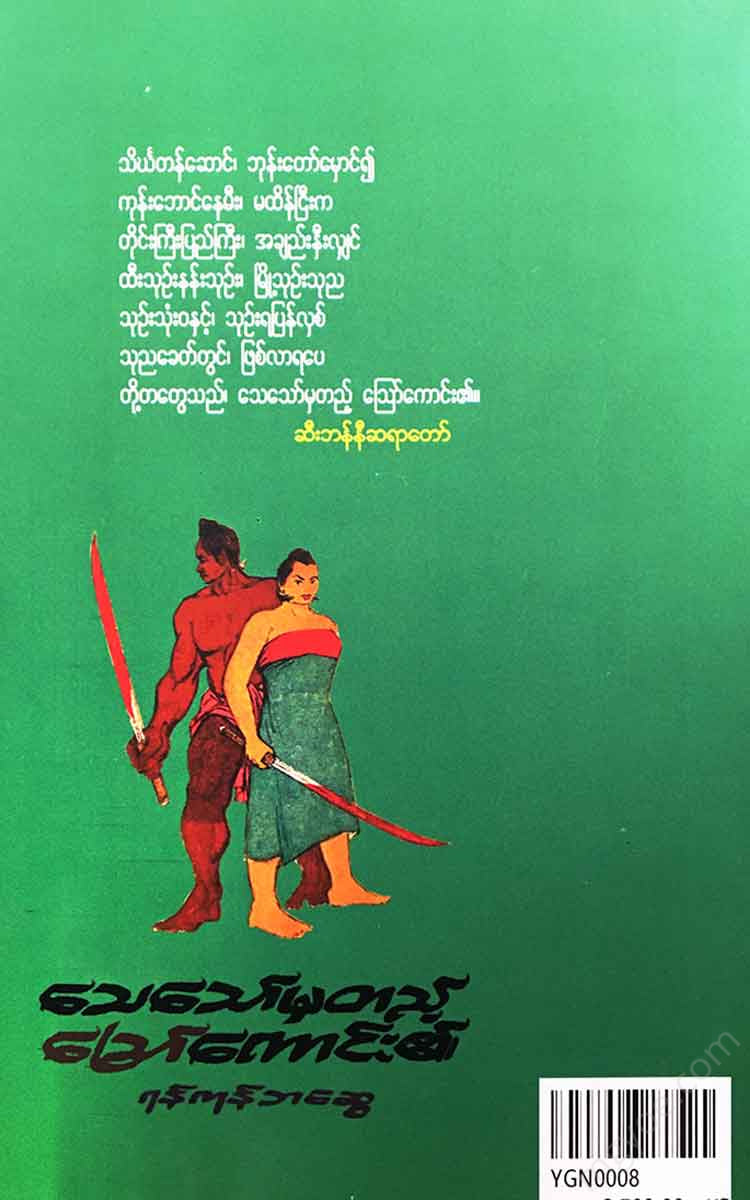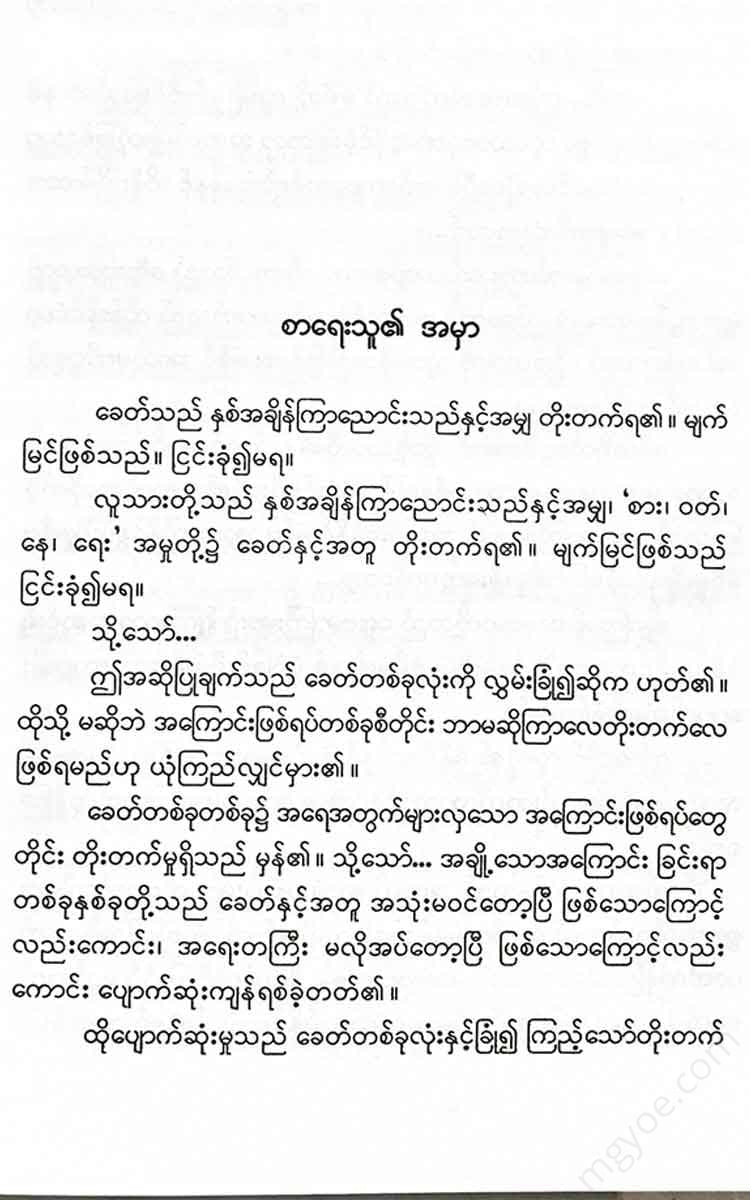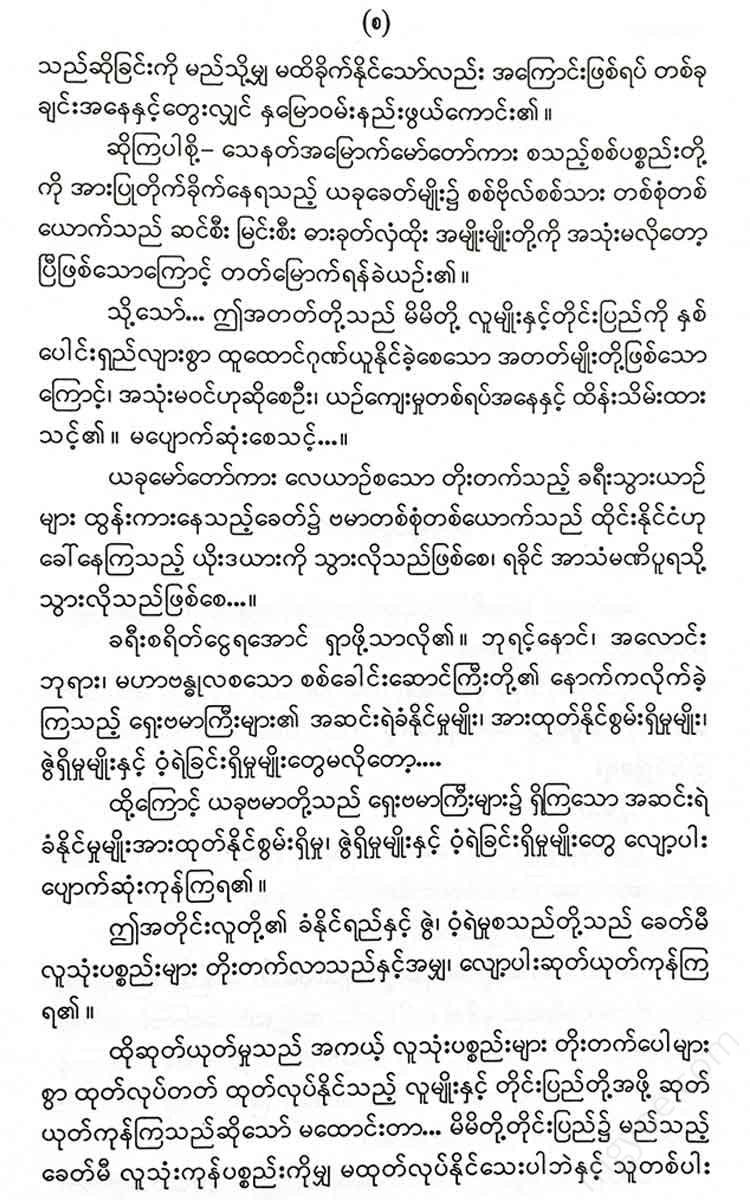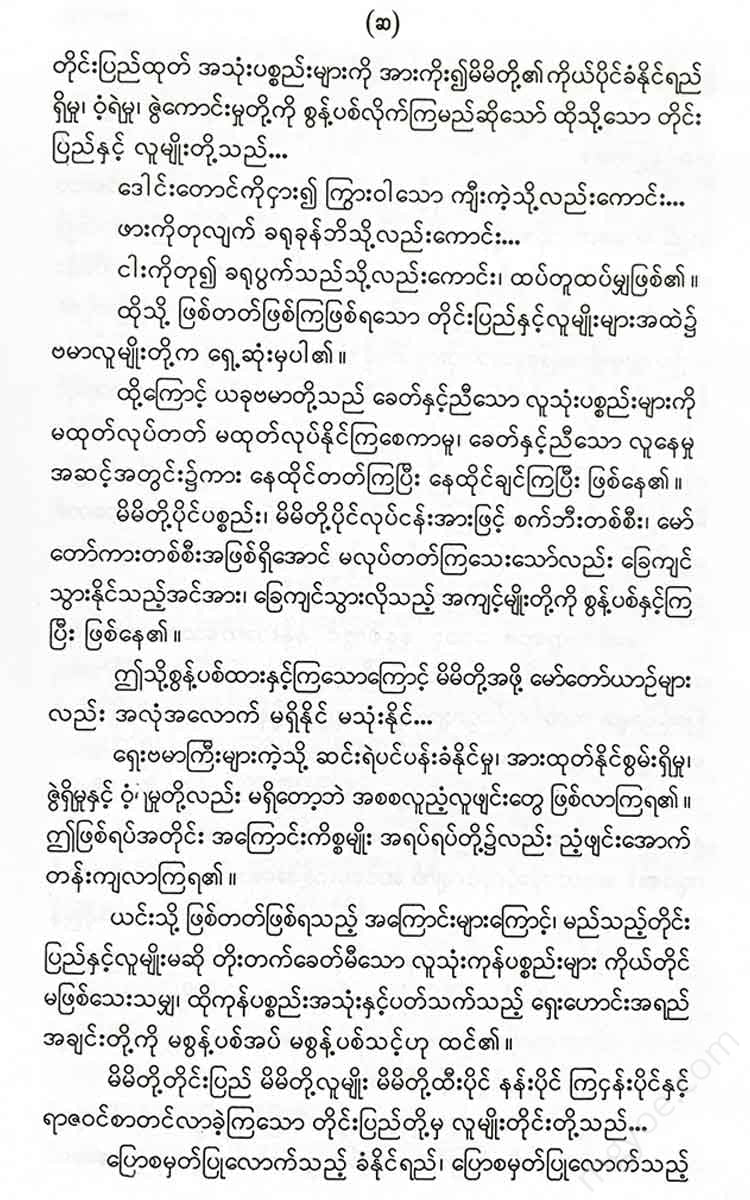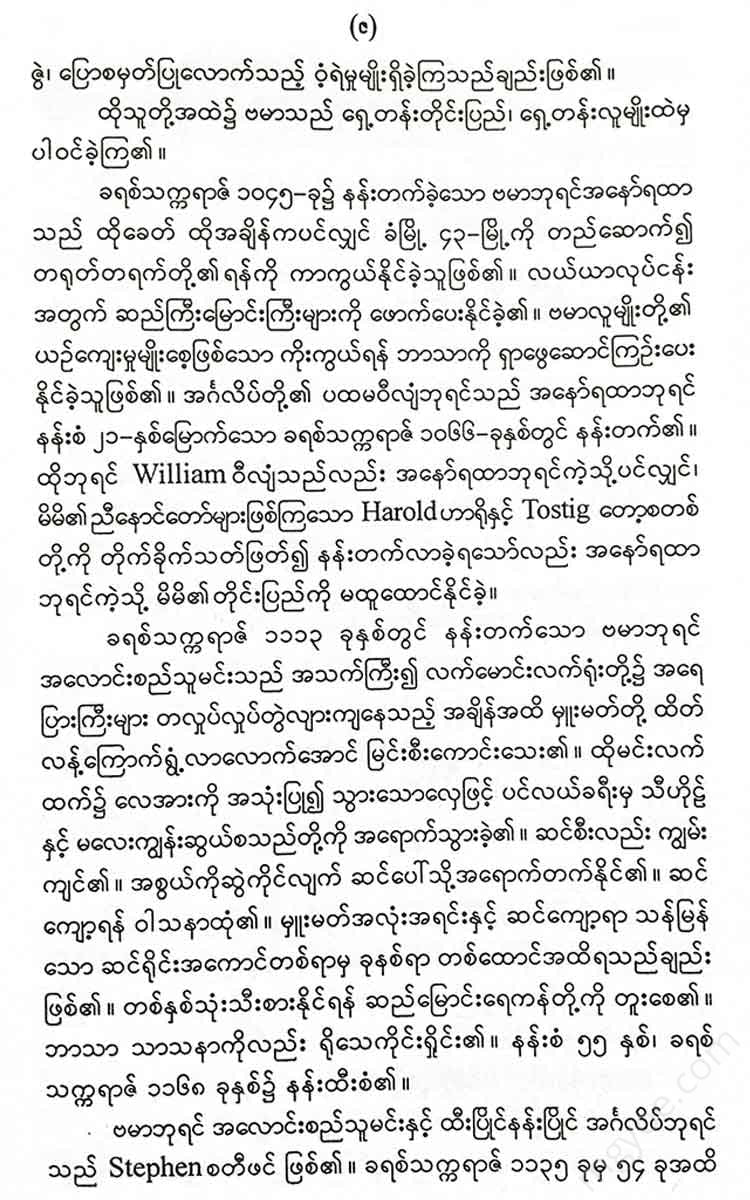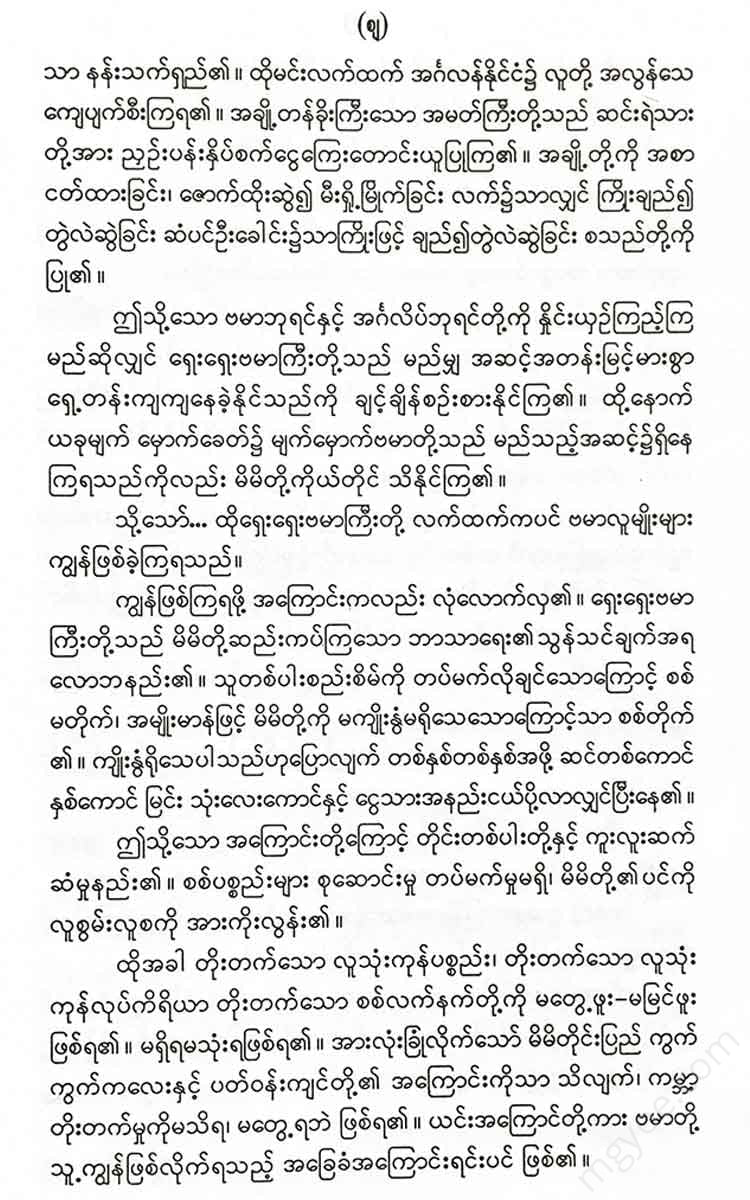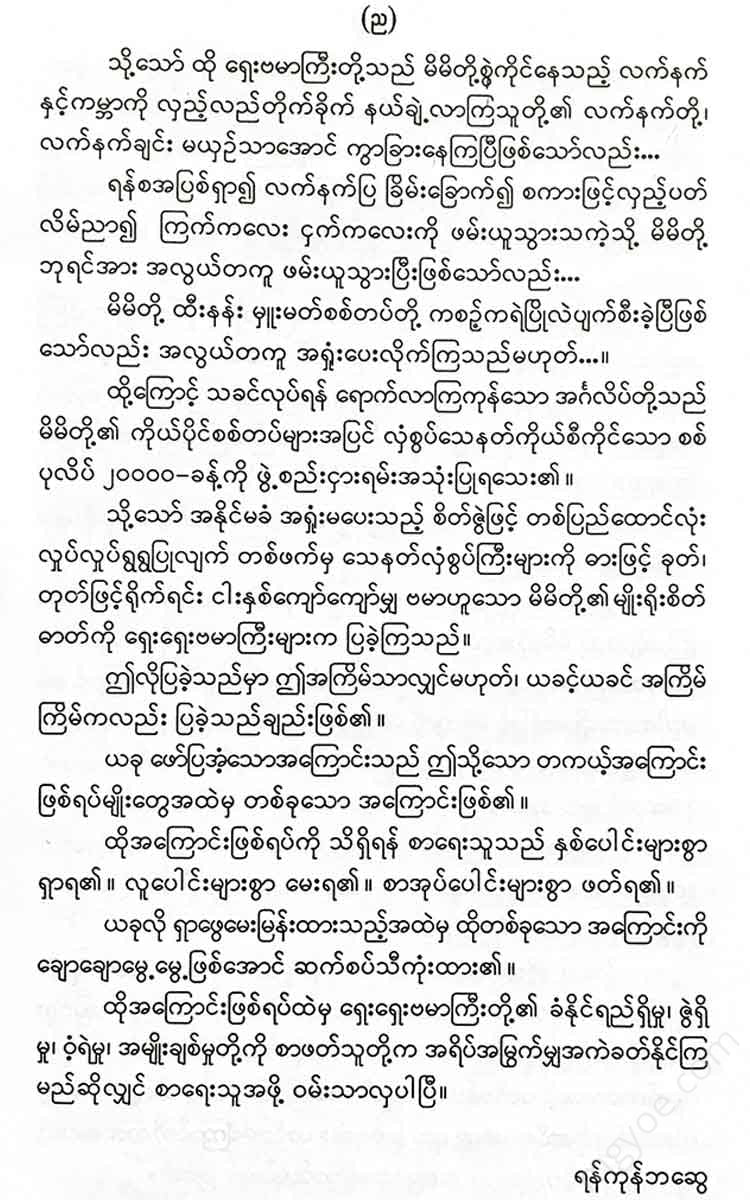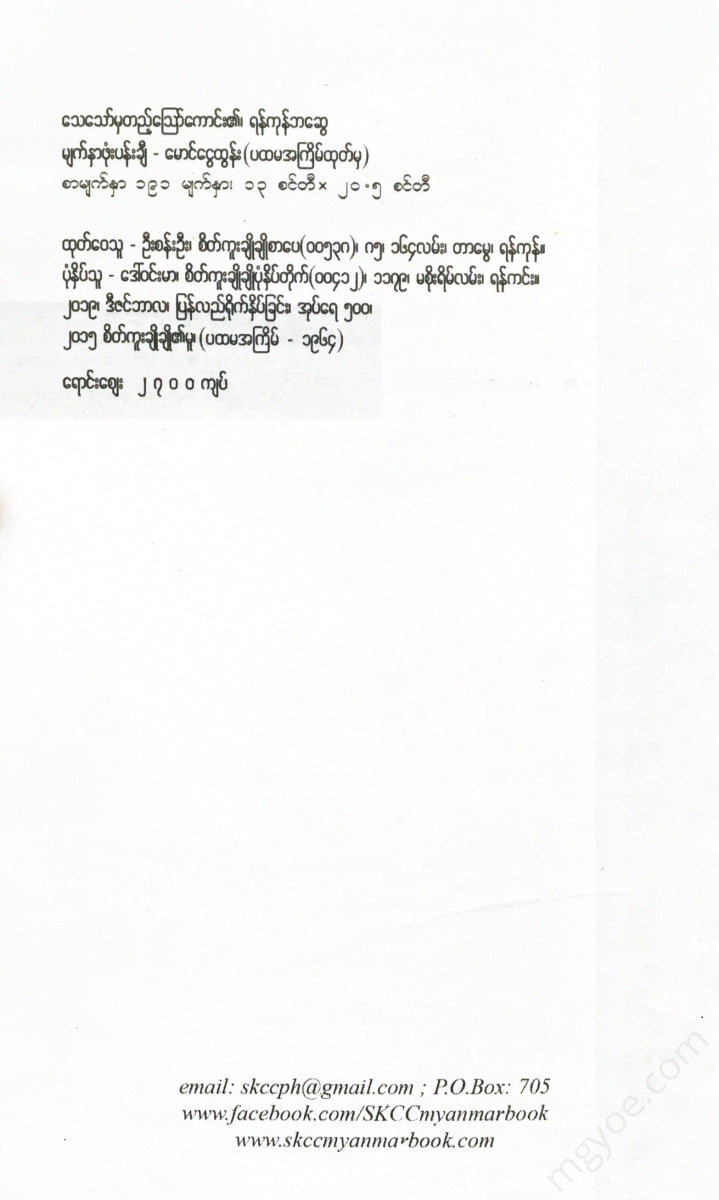စိတ်ကူးချိုချိုစာပေ
Yangon Ba Swe - Even if you die, you will be fine.
Yangon Ba Swe - Even if you die, you will be fine.
Couldn't load pickup availability
The reason for their emergence
A wolf was drinking from above a small flowing stream. A little lamb was drinking from a distance below.
When the wolf saw the lamb, he wanted to kill it to fill his stomach. If he caught it and ate it... he would be called an injustice. So he frowned and looked at the lamb.
" Hey, little lamb... I'm drinking water here. Why are you disturbing my drink..."
" I can't handle it, the water flows from the Great Wolf to me, so only I can handle it..."
The wolf saw it, thought about it, then turned and looked at the lamb with a hostile expression, then stopped.
"Hey.. let's leave it at that... You were talking bad about me last year, weren't you..."
" No, sir. I wasn't born last year, I'm only three months old now."
" If you hadn't been born last year, I would have been your father. You guys are all the same, you're just trying to say bad things about me. Now..."
The big wolf killed the little lamb.
In the story, there are two characters, the wolf and the little lamb, but the Burmese take the place of the little lamb and the English take the place of the wolf...
It was during the reign of King Bagan in the year 1213-14 of the Burmese calendar, 1852 AD.
Yangon is ruled by the governor. The Burmese governor is the head of the law, the sword, and the head of the life and limb. He has the right to judge, the right to impose capital punishment, and the right to kill himself.
It is governed by Burmese law, Burmese criminal law, and Burmese religious law. All those living on Burmese land governed by the Burmese governor must respect and honor the Burmese governor. No one is allowed to enter the Burmese governor's house on horseback. This is Burmese tradition and Burmese culture.
The English merchant, Mr. Shepherd and Mr. Lewis, who were in the city of Yangon, Burma, were quarreling with the Indians who were also dependent on them in Burma.
An English sailor shot and killed a Burmese sailor for allegedly running his ship aground. The Englishman Lewis, in a dispute with rival black traders, killed a Burmese black trader at sea.
In addition, the Bengali men accused Lewis of murder and other crimes of not paying his dues... and complained to the Rangoon governor. The Rangoon governor, who had accused the English merchant of embezzlement, non-payment of wages, and murder, fined him nine thousand Burmese kyats, which was very lenient, since they were foreigners.
The fine was to pay the victims three pisas in compensation for their lives, as well as to pay for the money they had spent and the wages they had been forced to pay.
The English merchants were not satisfied with this, thinking that their Englishmen would not be guilty if they killed the Burmese, let alone the blacks. However... the Rangoon governor's decision to fine them nine thousand kyats was nothing but unjust torture. Unable to bear this kind of torture and oppression, they appealed to their British government for help.
The British government, at a time when they had the best military power in the world, did not turn a blind eye to the oppression of their people abroad... and therefore...
" The English merchants in Hanthawaddy are being oppressed by the Governor of Yangon. Therefore, please satisfy the English merchants. Also, remove the Governor of Yangon from his position as governor..." was the message sent to the Burmese king.
Regarding the British government's letter, the Burmese king wanted to be "a man of few words."
In fact, the Burmese king and his Burmese officials knew that the British were trying to provoke them.
Therefore, keeping a close eye on the junior officers and ordinary civilians is a task in itself. If not, it will not work.
The Burmese and the English have different cultures, and if they can accommodate each other, that is fine. However... the English, who want to provoke, deliberately try to make the Burmese unable to stand up.
The Burmese people respect their elders and their masters. When the governor comes, they stop at the side of the road to show respect. After the governor passes, they go where they want to go. This behavior is a traditional Burmese cultural rule.
The Burmese-speaking English, who knew this, would deliberately pretend not to know, and would come up to the governor at the right time. When they saw him, they would not only not give way, but would also stand in front of him and urinate.
" Hello... Good morning, Your Majesty... The weather is nice and pleasant. You are growing stronger and healthier every day. I am happy to see you..." Arata said, wanting to pat the Governor's stomach with his hand.
The British justified this behavior by saying that they were acting out of love for the city minister and in accordance with their customs, but in reality they were doing it deliberately because they knew that the Burmese would not be able to stand it.
The British's bullying tactics are such that the Burmese people are willing to risk their lives and even their entire nation to be destroyed.
The Burmese could not stand this kind of aggression, and were ready to strike with their swords, thinking that it would be a shame to insult the venerable old lord whom they respected.
If they turn their backs, they will cut the English who are insulting them with swords. If they cut them with swords, it will be a war between the English and the Burmese. If they are not strong enough to fight, they will be tortured by the Burmese, who are not strong enough to fight. The wolf is attacking the lamb.
The Burmese king, the chiefs, the governors, and all the chiefs of the cities knew about these events.
Therefore....
The Burmese king wrote to the British government, saying that the current governor had been removed and U Hmoon, the governor of Pyi Shwe Taung, had been appointed as the governor of Yangon. He had been ordered to investigate and manage the affairs until the English merchants were satisfied.
However.....the British government had sent Commodore Lambert Comin Dolingbach to Rangoon with a battleship.
The reason for sending Linberg was to write a letter to the governor of Rangoon to facilitate relations between English traders and the Burmese...
If the governor of Yangon did not accept the letter as it was, he would send a letter, or two letters, to the Burmese king.
Whether or not they were satisfied with the delivery of these letters, the British government sent Linberg with an order not to disturb or harm the Burmese, without receiving any further orders.
However... as soon as the Linbat entered the port of Yangon,
